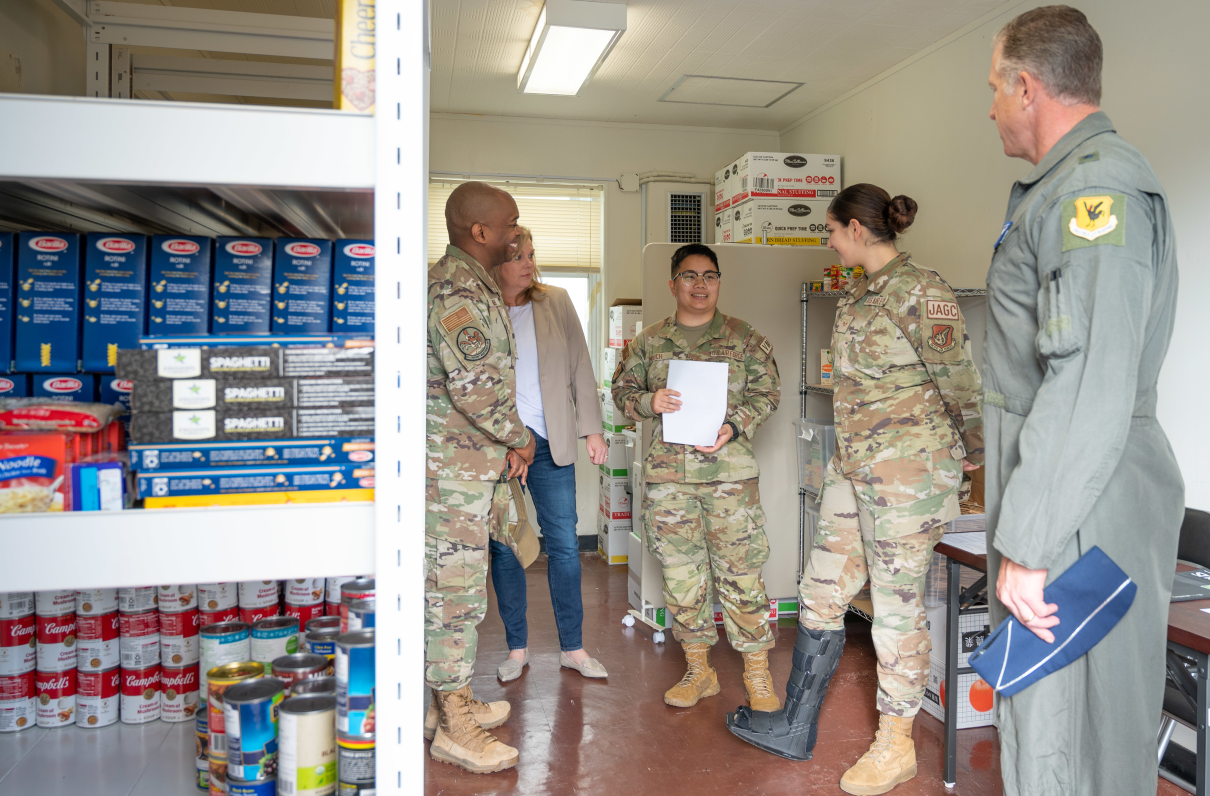Three prominent advocacy organizations — MOAA, the National Military Family Association (NMFA), and MAZON: A Jewish Response to Hunger — have called for urgent action to combat food insecurity among military families in a letter to House and Senate Armed Services Committee leadership.
The Aug. 30 letter emphasizes the need for a comprehensive approach to ensure the well-being and readiness of servicemembers by addressing key financial challenges faced by junior enlisted servicemembers.
“It is difficult to accept that anyone serving our country in the military might struggle with food insecurity, but the evidence is clear,” the letter states, with DoD survey data revealing up to 1 in 4 active duty members and spouses have faced such a challenge.
The letter highlights three critical measures included in the FY 2025 National Defense Authorization Act (NDAA) the organizations believe are essential to alleviating financial strain on military families:
1. A Pay Raise for Junior Enlisted Servicemembers: Increasing basic pay for junior enlisted servicemembers is vital. These individuals are often the most vulnerable to financial hardships, and a pay raise would help them better meet the basic needs of their families.
2. Restoration of the Basic Allowance for Housing (BAH): BAH has been reduced in recent years, leaving military families to cover more of their housing costs out of pocket. Restoring BAH to its previous level – 100% of estimated housing costs – would ease the financial burden on military families struggling to afford safe and stable housing.
3. Increasing the Basic Needs Allowance (BNA) Threshold: BNA was established to ensure food security for military families. Unfortunately, in its current state, very few servicemembers have access to this vital support. Raising the BNA threshold to 200% of federal (region-specific) poverty guidelines would extend this assistance to more families in need, ensuring they have access to essential resources like food and housing.
[RELATED: ‘Solutions’ to Address Military Food Insecurity Fall Short]
The letter underscores supporting military families' health, well-being, and quality of life. As Congress considers the FY 2025 NDAA, this coalition continues to press lawmakers to include these provisions, which serve as investments in the people who protect our country.
Support Military Spouses
Donate to The MOAA Foundation and support MOAA’s efforts to help military spouses in their career journeys.

